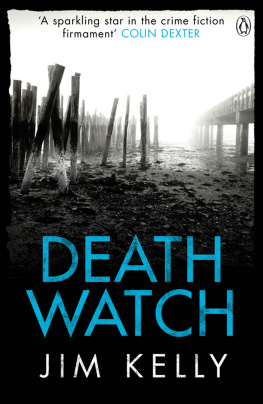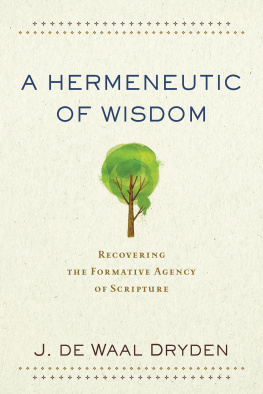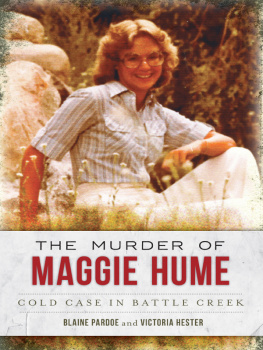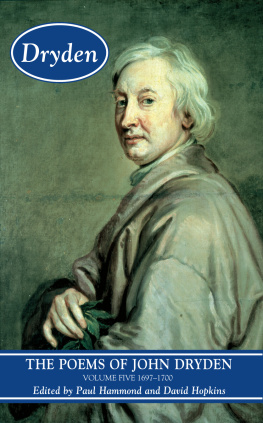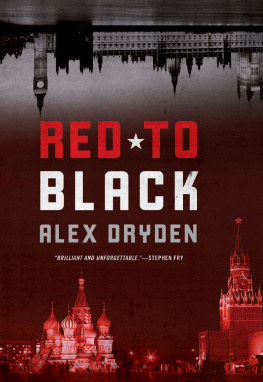PENGUIN BOOKS
THE FIRE BABY
Praise for Jim Kelly
A significant new talent Sunday Times
The sense of place is terrific: the fens really brood. Dryden, the central character, is satisfyingly complicated a good atmospheric read Observer
A sparkling star newly risen in the crime fiction firmament Colin Dexter
Kelly is clearly a name to watch a compelling read Crime Time
Beautifully written The climax is chilling. Sometimes a book takes up residence inside my head and just wont leave. The Water Clock did just that Val McDermid
An atmospheric, intriguing mystery, with a tense denouement Susanna Yager, Sunday Telegraph
Excellent no-frills thriller with a real bite. 4 stars FHM
A story that continuously quickens the pulse makes every nerve tingle. The suspense here is tight and controlled and each character is made to count in a story that engulfs you while it unravels Punch
Kellys evocation of the bleak and watery landscapes, provide a powerful backdrop to a wonderful cast of characters The Good Book Guide
ABOUT THE AUTHOR
Jim Kelly is a journalist. He lives in Ely with the writer Midge Gillies and their young daughter. He is the author of five novels: The Skeleton Man, The Coldest Blood, The Moon Tunnel, The Fire Baby and The Water Clock, which was shortlisted for the CWA John Creasey Award for best novel of 2002. He is currently at work on his new mystery, Death Wore White, featuring DI Peter Shaw (who is introduced in The Skeleton Man).
In 2006 Jim Kelly was awarded the Dagger in the Library by the Crime Writers Association for a body of work giving greatest enjoyment to crime fiction readers
To find out more about Jim Kelly and other Penguin crime writers, go to www.penguinmostwanted.co.uk
The Fire Baby
JIM KELLY

PENGUIN BOOKS
PENGUIN BOOKS
Published by the Penguin Group
Penguin Books Ltd, 80 Strand, London WC2R 0RL , England
Penguin Group (USA) Inc., 375 Hudson Street, New York, New York 10014, USA
Penguin Group (Canada), 90 Eglinton Avenue East, Suite 700, Toronto, Ontario, Canada M4P 2Y3
(a division of Pearson Penguin Canada Inc.)
Penguin Ireland, 25 St Stephens Green, Dublin 2, Ireland
(a division of Penguin Books Ltd)
Penguin Group (Australia), 250 Camberwell Road,
Camberwell, Victoria 3124, Australia (a division of Pearson Australia Group Pty Ltd)
Penguin Books India Pvt Ltd, 11 Community Centre,
Panchsheel Park, New Delhi 110 017, India
Penguin Group (NZ), 67 Apollo Drive, Rosedale, North Shore 0632, New Zealand
(a division of Pearson New Zealand Ltd)
Penguin Books (South Africa) (Pty) Ltd, 24 Sturdee Avenue,
Rosebank, Johannesburg 2196, South Africa
Penguin Books Ltd, Registered Offices: 80 Strand, London WC2R 0RL , England
www.penguin.com
First published by Michael Joseph 2004
Published in Penguin Books 2005
This edition published 2007
6
Copyright Jim Kelly,2004
All rights reserved
The moral right of the author has been asserted
Except in the United States of America, this book is sold subject to the condition that it shall not, by way of trade or otherwise, be lent, re-sold, hired out, or otherwise circulated without the publishers prior consent in any form of binding or cover other than that in which it is published and without a similar condition including this condition being imposed on the subsequent purchaser
ISBN: 978-0-141-00934-6
For John
Acknowledgements
I would like to thank Beverley Cousins, my editor, for providing inspiration and advice in perfect measures, Faith Evans, for her determination to elevate the quality of writing in The Fire Baby, and Trevor Horwood, for creative and meticulous copy-editing. This book again centres on the case of a car-accident victim locked in a coma. I am grateful for the welcome extended to me by the Royal Hospital for Neuro-disability, Putney, and am happy to point out that donations can be made through its website: www.rhn.org.uk . I would like to thank Donald and Renee Gillies, and Jenny Burgoyne for helping with the text. Darren Fox, of Ely Fire Station, provided technical advice on the properties of fire. The US Air Force let me tour Mildenhall base, a privilege for which I am grateful. The oddities of the East Anglian weather system were expertly explained to me by Weather-quest, the forecasting company at the University of East Anglia. Midge Gillies, my wife, stepped in brilliantly to break the occasional logjam of ideas.
The Landscape of the Fens is, of course, real but topographical and historical details have been occasionally altered for the sake of the plot. All characters are entirely fictitious and any resemblance to real persons is entirely coincidental.
Tuesday, 1 June 1976 The Great Drought
East of Ely, above the bone-dry peatfields, a great red dust storm drifts across the moon, throwing an amber shadow on the old cathedral. Overhead a single, winking plane crosses the star-spangled sky. Flight MH336, just airborne from the US military base at Mildenhall, flies into the tumbling cauldron of dust.
The diamond-hard sand begins to shred the turning turbines and the dislodged blades scythe each other like spinning knives. The fuselage dips as the engine suffocates, and begins a descent of such violence that the passengers float, despite their seatbelts, in a weightless fall towards their deaths.
At precisely 11.08 pm, according to the pilots watch recovered at the scene, the fuselage buries itself in the soft earth. The distant cathedral tower shudders with the impact and the crows, roosting on the Octagon Tower, rise in a single cloud. Heads turn ten miles away at Littleport with the earthy thud of the crash, followed by the crackling combustion of the airfuel.
A fireball marks the point of impact at Black Bank Farm. Here there is too much sound to hear. At the heart of the fire a cold white eye burns where 50,000 gallons of kerosene turns to gas in a single second. Then the flames come, licking the stars.
At the foot of the vast white pillar of rising smoke the air crackles with the heat. And in the ashes of what had been Black Bank Farm she stands alone. Her, and the baby.
They are the only ones alive. Her, and the baby.
The family died at the table: her mother caught in the act of drowning in a flame, her fathers blackened arm still stretched towards his throat. His last words will stay with her to her deathbed: The cellar, Maggie. A celebration. Shed gone to get the bottle, leaving Matty in his cot by the empty fireplace. Celebration: a family christening to come, now that Matty had a father.
In the dry damp of the stone cellar she heard it coming. Machines, like people, can pretend to scream. But the pretence was gone in the final wail of the failing engines, the ripping metal, and the blow of the impact.
Sometimes she wished she had died then, as she should have.
Instead she saw the light and heard the sound that was the fire, the dripping fire, falling through the floorboards. The liquid fuel from the tanks, the quicksilver light that saved her life. So she found the stairs and climbed up to count the dead, hung, like game, from the burning rafters. Then the real horror, in the tiny swaddled bundle with the blackened limbs.
Outside, with her secret in her arms, she felt him kicking, and nudging with the jerky half-conscious movements only a child can make.
Even here, in what had been the kitchen garden, she felt the heat prickling her skin. She smelt her hair singe, as the black hanging threads turned to ash-white corkscrews. A lock ignited, and burnt into her cheek. She had a lifetime to feel the pain, but even now it terrified her with the slow, insidious intimation that the worst was yet to come.
Next page


